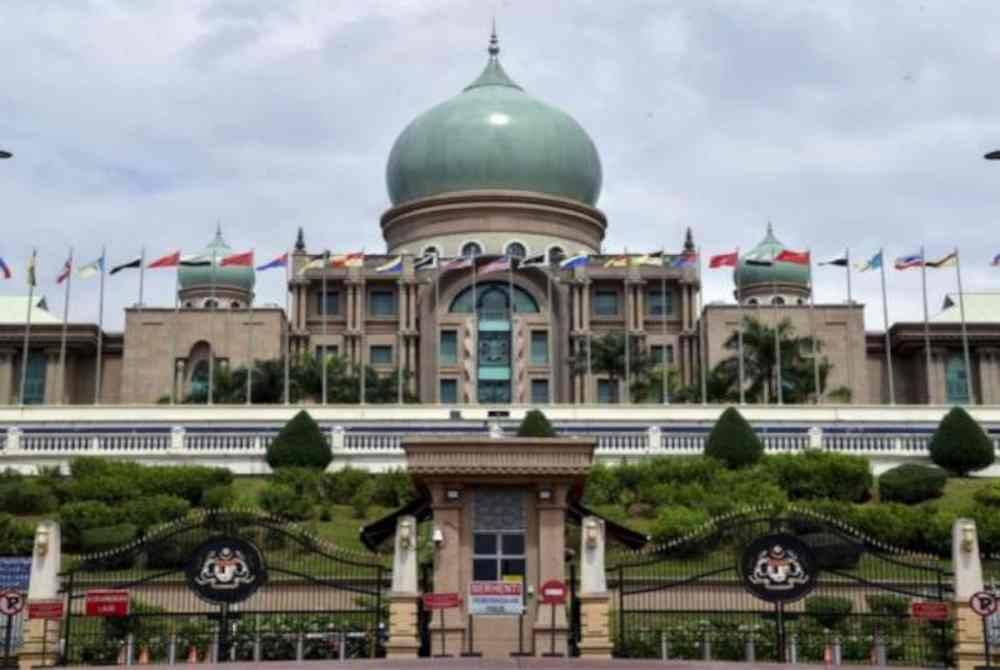Pros and cons of proposed bill to maintain government

SHAH ALAM – Deputy Prime Minister Datuk Seri Ahmad Zahid Hamidi's suggestion to enact specific legislation to allow the government formed after an election to administer and endure until the end of its term has stirred various reactions among the people.
Some welcome the proposal, while others disagree.
Earlier, Zahid, who is also the Umno President, emphasised that the idea was proposed to prevent any unresolved political interference.
This move, if implemented, could also prevent incidents of changing the prime minister three times during the 14th Parliament session.
Moreover, he expressed confidence that such legislation would enable the government to focus effectively on administering the country.
So, do the people agree or disagree with this raised proposal?
POSITIVE
Changing governments impact the economy
“The suggestion of the Bill to maintain a government in power until the end of its term is a commendable move, and I strongly agree with its implementation.
Looking back, we have witnessed a series of constant changes in the government after the 14th General Election (GE14). Hence, I believe this Bill will ensure that past events, such as the change of prime ministers three times during the 14th Parliament session, do not recur in the future.
When viewed from a democratic perspective, actions such as collecting statutory declarations (SD) and forming a new government contradict the Malaysian democratic system. Malaysia follows a parliamentary system where the government is formed by a political party or coalition with a majority of seats in the Dewan Rakyat.
The people vote for their representatives and the political party they desire. However, after the government is formed, incidents where the opposition party collects SDs and forms a new government do not adhere to the democratic system. Such actions disappoint, anger, and disillusion the people, contributing to a decrease in voter turnout from 82 per cent (GE14) to 74 per cent (GE15).
When governments change frequently, it also indicates economic instability, as investors must consider political stability and leadership when deciding to invest. Therefore, frequent changes in the government will impact the country's economy.
Additionally, when someone is appointed as prime minister, they should be given a sufficient period to demonstrate their performance. Changing the government halfway will halt ongoing development initiatives and projects, leading to long-term impacts on wasted time, government funds, and more.
As a patriotic youth with high hopes for our country, I strongly agree that this Bill will provide an assurance that the ruling government will strive to do its best during the term given by the people through elections,” - Universiti Sultan Zainal Abidin (UniSZA) International Student Relations Association President G Pravhilan, 22.
“My opinion on this proposed suggestion is that it should be implemented because it can guarantee the stability of the country, where the appointed government will not be bothered by any party until the end of its term.
Furthermore, it will allow the government to focus on administering the country, and its effects will be felt by the majority of the people. It also prevents the swift change of Prime Ministers seen in the past.
In my view, elected representatives will engage less in political manoeuvring and focus more on governing, thanks to the Bill that binds them.
In my opinion, if changes in the government occur before the end of its term, it will hinder economic growth because it will give a misleading picture to the market and foreign investors,” - Bank Manager, Faez Badrul, 33.
NEGATIVE
Avoid leaders taking advantage, fulfil responsibilities
“In my opinion, representatives have the right to propose a motion of loss of confidence and change the government.
With this Bill, I feel that leaders will take the opportunity not to fulfil their responsibilities properly because there is nothing that can threaten their positions.
Leaders will carry out their duties with outstanding performance because their positions can be withdrawn at any time.
For me, diplomacy is one of the ways that should be elevated in any issue. With a Bill like this, the impact will be more severe, and undesirable things will happen.
Existing laws can actually resolve this issue more easily through diplomacy between leaders.
The opposition only needs to gather SDs through diplomatic means and propose a motion of no confidence in the Parliament. If the motion is approved, the government will change more peacefully without involving the power of the people. Moreover, the country does not need to witness another dark event in its governance history," - UniSZA Student, Nurin Maisarah Zulkifli, 22.
"I disagree with this proposal because, in my view, it seems to give an advantage to one party only. It might erode the system of checks and balances and democracy.
There is concern that it will lead to the misuse of power because there is no "watchdog" that can put pressure on such a government.
Moreover, if implemented, the House of Representatives may be dominated by the government, as they are not bound to govern until the end of the term. This will give the government excessive power, sometimes leading to the oppression of the opposition.
So, this proposal needs thorough and detailed consideration if it is genuinely intended to be implemented. The government also needs to listen to the voices of the opposition, professionals, and the people before making any proposals,” - Self-Employed, Siti Noor Asiah Muda, 37.














